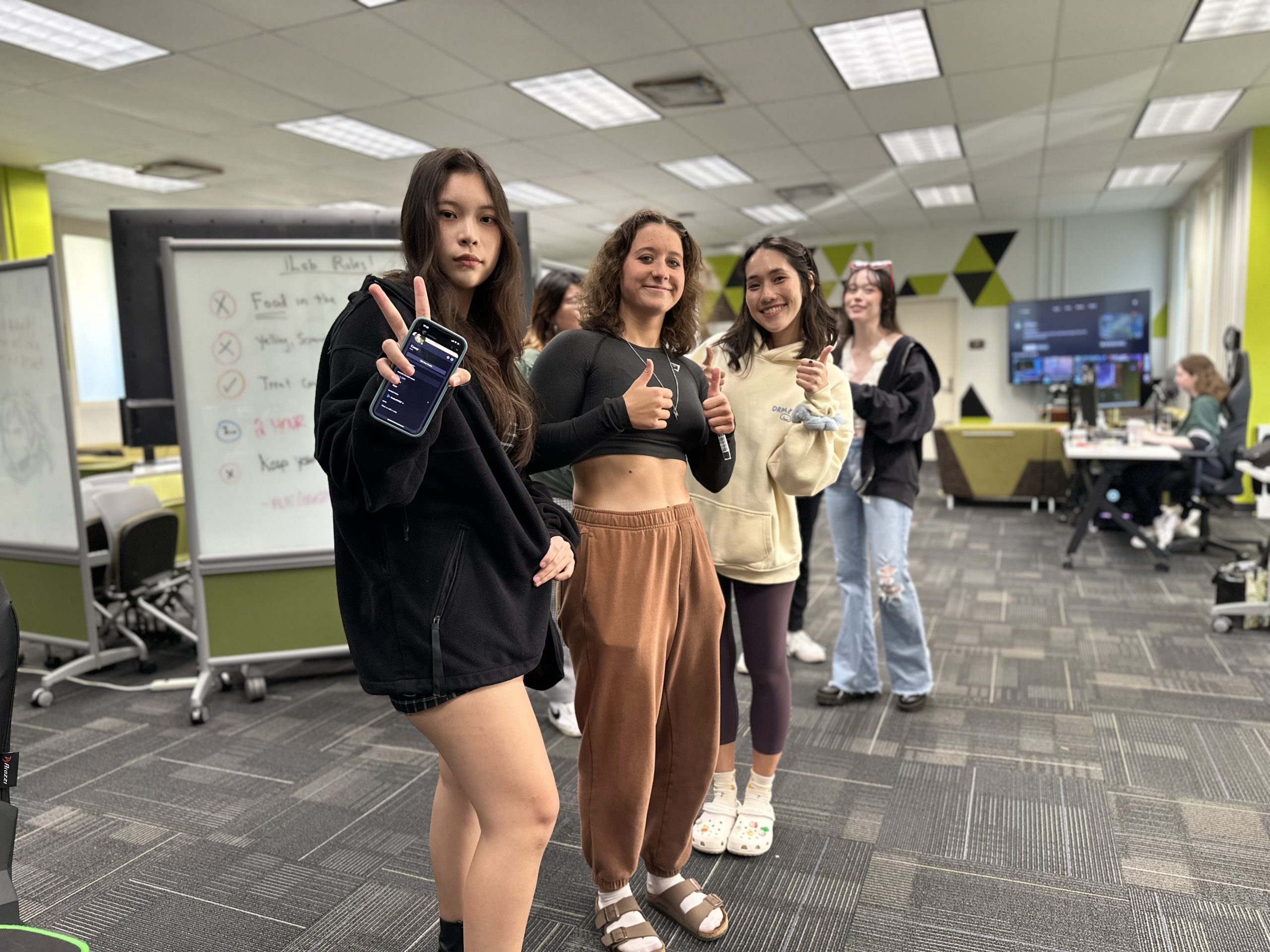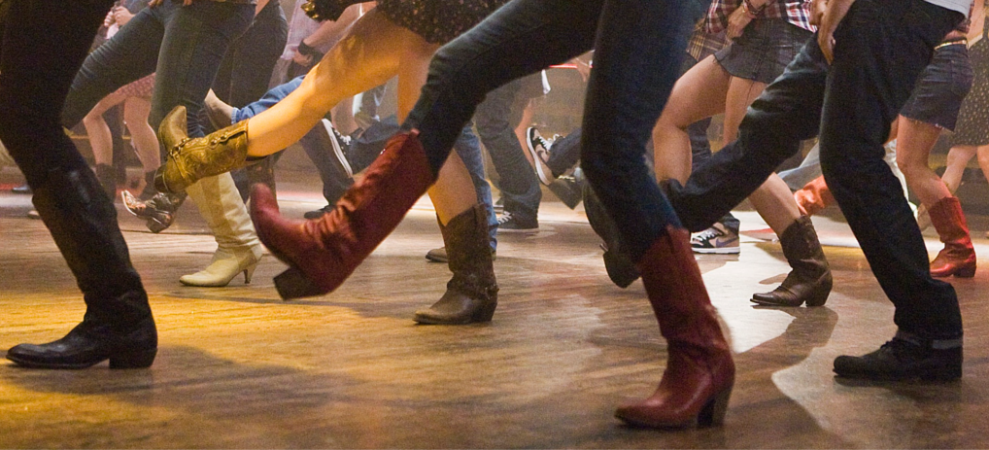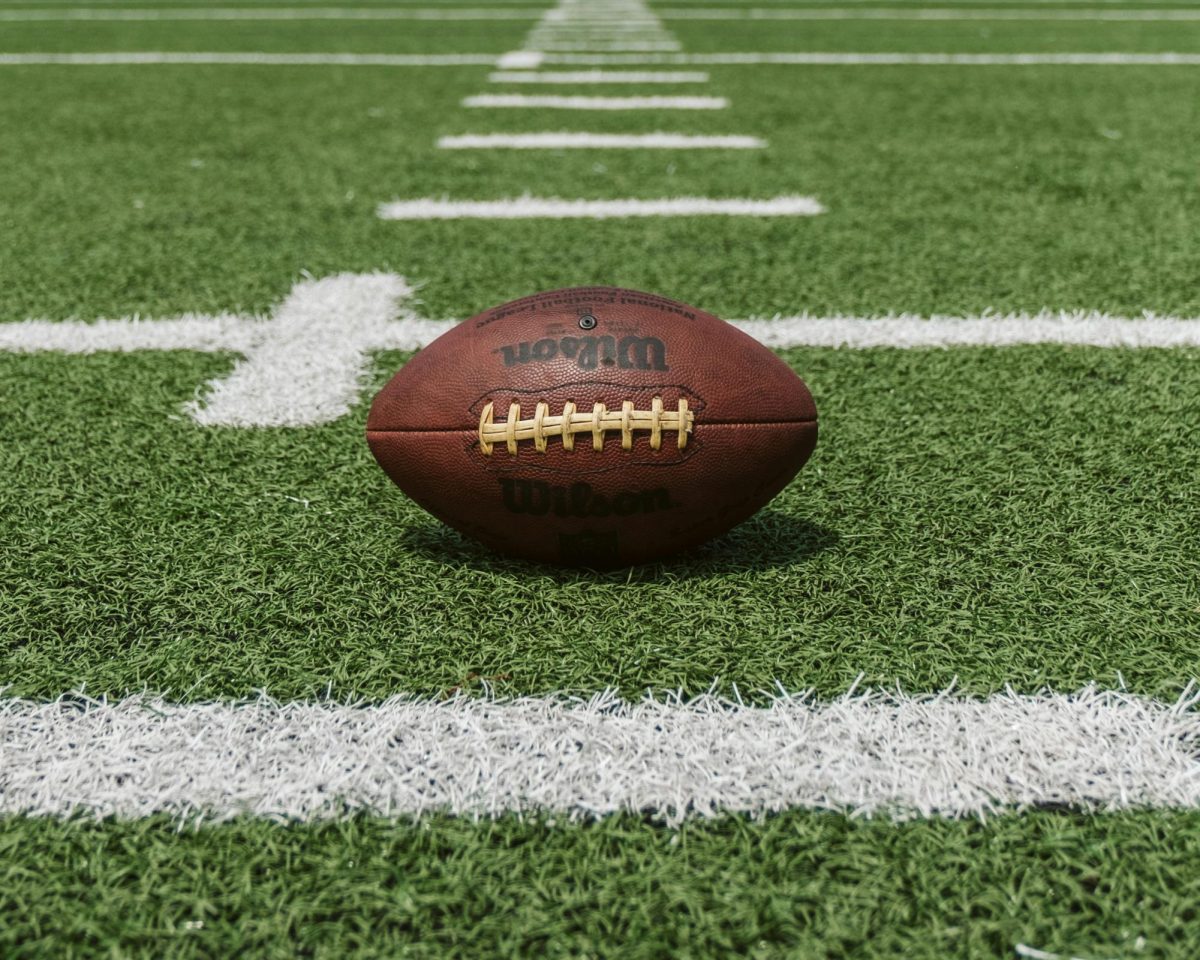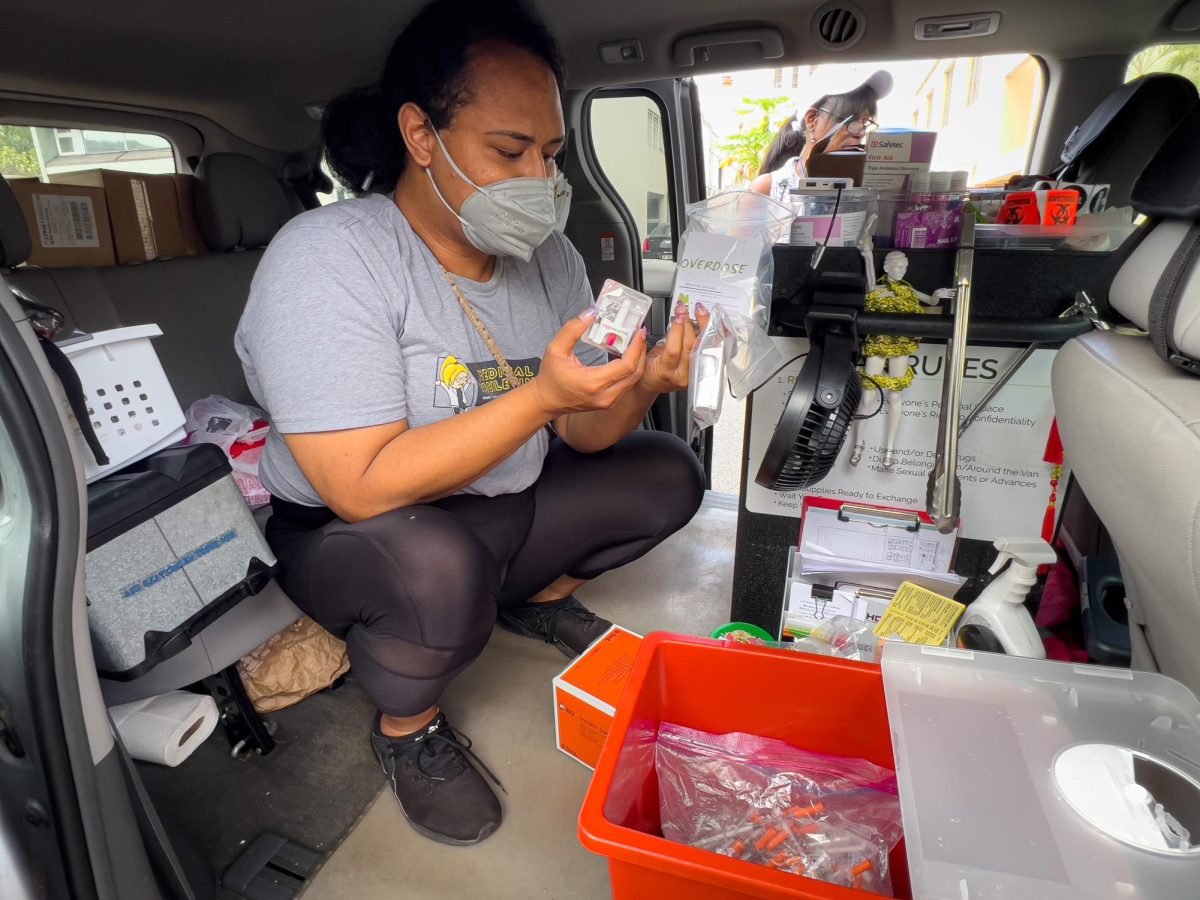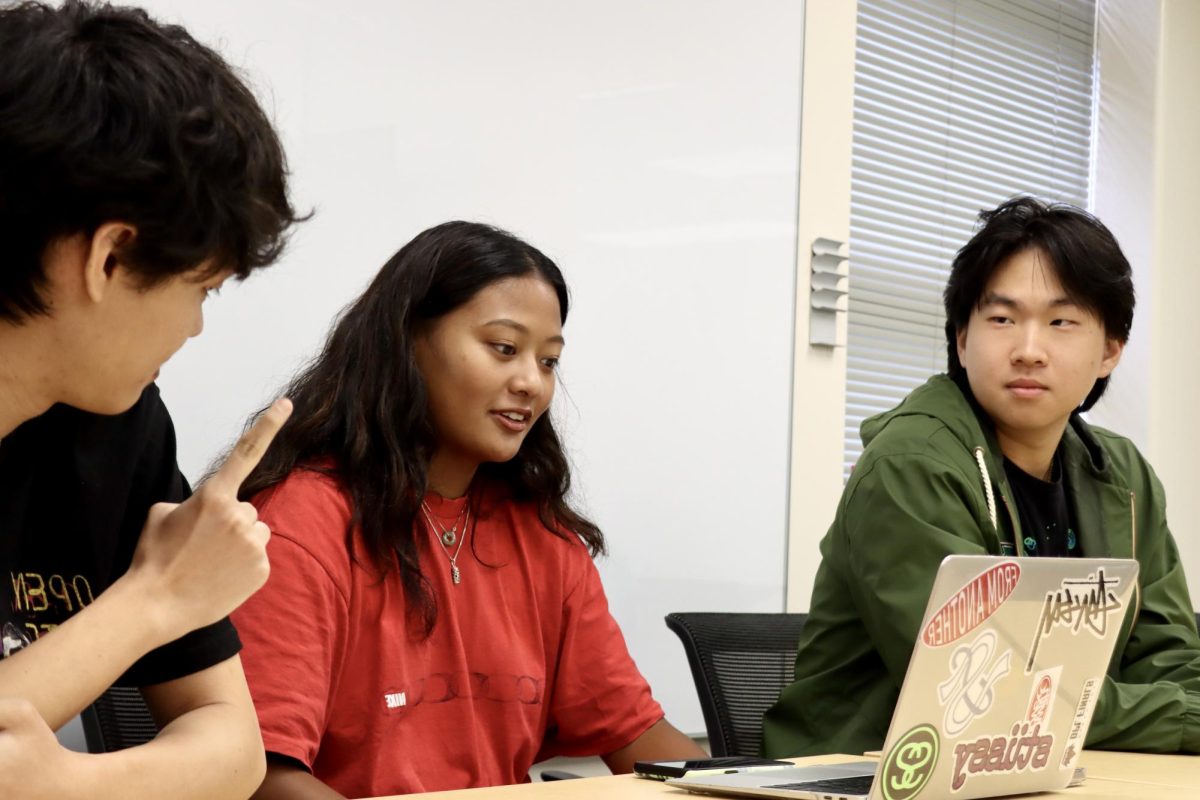Zelda “Jellyzelly” Cole and her team were met with a hail of bullets and cut off at every turn. The in-game leader of the Women of UHEsports’ Valorant team, already down six games to one, knows this game is lost, too, but she still won’t let her teammates give up. Over her headset, she calls out Camille “nezuko” Castro, saying how “clutch” her smoke screens are, any little glimmer of hope she can provide, before the match ends.
Cole said her approach to this recent Aurora Series tournament, inspired by an all-women’s professional league initiative from Riot Games called Game Changers, was to see how UH’s relatively new team stacked up against the best in the country, to keep positive in the process, and to help carve out a place for women in Hawai’i in the world of competitive gaming.
After the final headshot rings out and the “Match Lost” label flashes over Cole’s screen, she turns to her teammates and tells them how proud she is and how remarkable their accomplishments with such a short time together.
This was the first time that the WoUHE Valorant team had ever competed in a serious tournament. A somber mood blankets the team as Cole and the other WoUHE leaders reflect on how far their young program had come.
About two-thirds of Americans play video games, and about 45% of those gamers are female, according to the Entertainment Software Association. But girls and women who game almost universally face sexism and online harassment that drives many of them away, especially from the competitions, where the trash talking can be fierce.
“A lot of times in Valorant when I play by myself and not with other women, if I ever tried to make a voice comm (voice communication) and they hear that I’m a girl,” said Camille Castro, a WoUHE Valorant player, “I had a lot of instances where they would just say, ‘Oh, it’s a woman get back in the kitchen.’ I never would have thought I would have heard guys saying that to me.”
Academic researchers have been taking notice of the assertion of women into gaming spheres traditionally dominated by men. For example, one international study collecting data in both the United States and Australia found that poor-performing males in video games were more likely to have directed hostility at female players. Linking the behavior with the thought process, the researchers theorized that lower performing males feel threatened doubly by high performing females. The hostility gives an underachieving male the ability to degrade someone else to feel superior while also applying dominance on a female who they see as being better than them.
When Madeline “Madbanoona” Gilbert and Alie “Goldenalie” Wolpo first set out to start an all women’s team at UHEsports in the spring semester of 2023, they had just wanted to create a safer space on Mānoa campus for women to enjoy gaming.
Through game play, hosting events and even doing community outreach, such as public photoshoots, the WoUHE team aimed to develop technical skills and the portfolios of their members as a way to be able to find work in eSports and technology fields. During one such event promoting women in STEM, the WoUHE team had a taste of how prominent their organization had become in such a short period of time.
“There was a girl and her mom that had shown up to this S.W.I.T.C.H (Supporting Women Information Technology Computing Hawai’i) event, and (they) talked to Madeline about how their daughter was playing on their high school’s league team,” said Cole. “And how the coaches were being very weird to her daughter, and the other teammates were also calling out her daughter for not being good enough to be on the team. So the mom and the daughter had come, so they talked to us about our program” and how to learn from it.
“In my experience being in the program (UHEsports) and working in eSports, there’s an incredibly large amount of sexism that’s just very blatant,” said Gilbert, the player support coordinator of UHEsports and co-founder of WoUHE. Gilbert’s position is kind of like the human resources department of the program, she said, handling the logistics of coordinating the eight different teams and more than 100 players within UHE.
Since taking on her role, Gilbert has helped the program with everything from filming content for the WoUHE podcast to finding tournaments for the teams to enter, like the ill-fated Aurora Series. But Cole, Castro, and the rest of the players on the Valorant team already have left that defeat behind, knowing greater days for the group are ahead. They have momentum, and they have a higher purpose, to bring more equity to gaming in the state.
“It’s more about (people) standing beside us,” and supporting the team, win or lose, Gilbert said, “than it is about lifting us up.”
